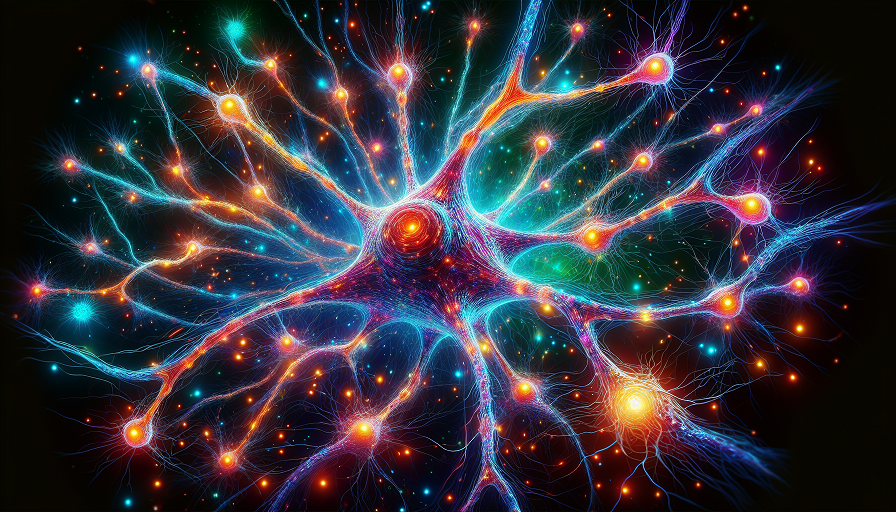
We all know the importance of being a good listener, whether it’s in the classroom, during meetings, or in our personal relationships. Being able to deeply understand and remember what someone else is saying can improve communication and help build stronger connections. Given the rising trend of using nootropics—or smart drugs—many are wondering whether these substances can actually enhance listening skills.
Contents
What Are Nootropics?
Nootropics might sound like a futuristic concept, but they actually come in many different forms and have been around for a while. Essentially, nootropics are substances that are believed to enhance brain performance. They are commonly referred to as “smart drugs” or “cognitive enhancers” because they are used to potentially boost creativity, focus, and memory.
Nootropics can be natural or synthetic. Natural nootropics include things like caffeine, ginkgo biloba, and omega-3 fatty acids, each of which is commonly found in everyday products or diets. Synthetic nootropics, on the other hand, are usually compounds developed in labs, like modafinil and racetams, and may require a prescription or professional supervision.
How Do Nootropics Work?
Understanding how nootropics function involves looking at how they interact with our brain’s chemistry. Here are a few core ways they might work:
- Neurotransmitter Function: Many nootropics influence the production of neurotransmitters—chemicals that transmit signals between neurons. For instance, some substances increase the levels of dopamine, serotonin, or acetylcholine, enhancing mood, motivation, and memory.
- Blood Flow: Improved blood flow to the brain can increase oxygen and glucose supply, supporting energy levels and cognitive function. Some nootropics like ginkgo biloba have been reported to enhance circulation.
- Neuroprotection: Certain nootropics are thought to protect neurons and support brain health, providing longer-term benefits rather than immediate boosts.
Listening and Cognitive Functions
Listening is much more than just hearing sounds; it’s an active process that involves several cognitive functions. Here’s how these functions come into play:
- Attention: Effective listening requires focused attention to filter out external distractions and hone in on what’s being said.
- Memory: Listeners must retain information for processing, which calls for a reliable working memory.
- Processing Speed: Fast processing allows listeners to keep up with complex information as it’s presented.
- Comprehension: This involves understanding and making sense of the information received.
For nootropics to make you a better listener, they need to enhance these cognitive functions. Let’s explore whether they do.
Can Nootropics Enhance Listening Skills?
Nootropics can influence several aspects of brain function that are crucial to listening. Here’s how they might help:
Boosting Focus and Attention
Staying focused is vital when listening to someone, especially in noisy environments or when the topic is complicated. Nootropics like caffeine are well-known for their ability to enhance concentration. They stimulate the central nervous system and can improve alertness, which means you’re likely to catch more details during conversations.
Other natural nootropics, such as ginseng and Rhodiola rosea, are also reputed to enhance attention, which can make active listening a more approachable task.
Improving Memory Retention
A robust memory allows you to retain and recall information accurately. Many nootropics are promoted to support memory function, which can benefit your ability to remember discussions and details. Substances like Bacopa monnieri are believed to boost memory retention by supporting the growth of dendrites, the parts of neurons that receive signals from other neurons.
Synthetic nootropics like piracetam may enhance memory by aiding in the production of neurotransmitters involved in learning and memory.
Enhancing Processing Speed and Comprehension
When listening, being able to quickly process information ensures you can follow along with the conversation. Some nootropics promise to increase brain processing speed, allowing you to comprehend and respond more efficiently. L-theanine, often found in tea, is said to promote relaxation without drowsiness and, when combined with caffeine, might enhance both speed and accuracy of cognitive tasks.
This improved processing can lead to better understanding and insightful responses, key components of effective listening.
Exploring Realistic Expectations
While the potential effects of nootropics on listening abilities are fascinating, it’s crucial to manage expectations. These substances are not miracle workers, and results can vary widely depending on the individual and the particular nootropic in question.
Moreover, lifestyle factors such as sleep, diet, and stress management have significant impacts on cognitive functions as well. Relying solely on nootropics while ignoring these basic health practices is unlikely to produce drastic improvements in listening skills.
Ethics and Safety Considerations
When discussing nootropics, it’s important to approach the subject with a sense of responsibility. Not all nootropics are thoroughly studied, and their effects can be unpredictable, particularly the synthetic varieties. Some might interact with other medications or have side effects.
If you’re considering nootropics for cognitive enhancement, especially if you’re targeting listening skills, it would be wise to consult with a healthcare provider. They can guide you on safe choices and dosages that match your individual needs.
Nootropics offer a promising realm of possibilities for enhancing our cognitive functions, including those linked to effective listening. While they may provide some benefits, they are best viewed as potential aids, rather than fixes, for improving the precious skill of listening.

